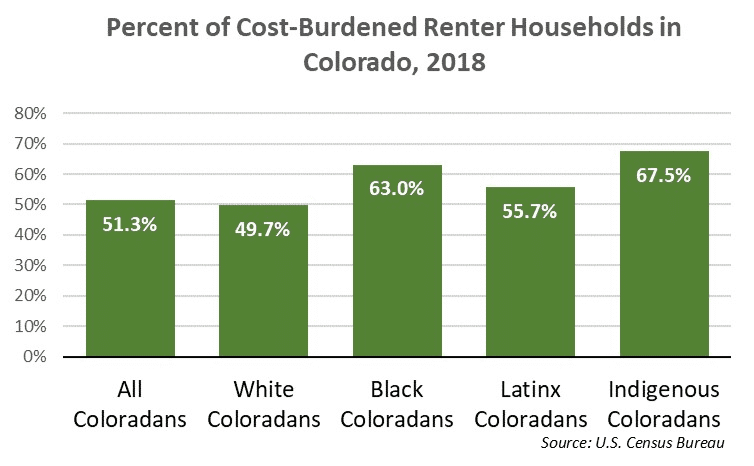A summary of the list of recommendations on the implementation of the OBBBA in Colorado regarding public benefits systems and work requirements.
Recent articles
CCLP testifies in support of Colorado’s AI Sunshine Act
Charles Brennan provided testimony in support of Senate Bill 25B-004, Increase Transparency for Algorithmic Systems, during the 2025 Special Session. CCLP is in support of SB25B-004.
Coloradans launch 2026 ballot push for graduated state income tax
New ballot measure proposals would cut taxes for 98 percent of Coloradans, raise revenue to address budget crisis.
CCLP statement on the executive order and Colorado’s endless budget catastrophe
Coloradans deserve better than the artificial budget crisis that led to today's crippling cuts by Governor Jared Polis.
Scorecard report reveals racial disparities

In the most recent Prosperity Now Scorecard report, Colorado placed No. 12 in the nation – moving up two spots from 2019. Although the state fared well in the overall prosperity rankings (No. 8 out of 51), its low racial disparity ranking (No. 37) indicates a higher economic status of white Coloradans compared to Coloradans of color. Still, while the state’s racial disparity ranking is low, it is an improvement from last year’s ranking of No. 42.
Prosperity Now is a national nonprofit organization whose mission is to ensure everyone in our country has a clear path to financial stability, wealth and prosperity. To assist state organizations like CCLP, Prosperity Now uses a list of indicators to rank states on the economic prosperity of residents. This scorecard, released annually, also considers the level of racial disparity between residents who are white and residents of color, which Prosperity Now uses to create an overall “scorecard” rank.
Taking a closer look at outcomes, the Scorecard shows that 51.3 percent of all Colorado renters spend more than 30 percent of their income on rent per month. Families who pay more than 30 percent of their income for housing are considered cost-burdened and may have difficulty paying for expenses such as food, medical care and transportation.
The Scorecard shows that 49.7 percent of white Coloradans were cost-burdened compared to 63 percent of black Coloradans, 55.7 percent of Latinx Coloradans and 67.5 percent of Indigenous peoples. Although Coloradans of all demographics feel the strain of paying rent each month, the burden is disproportionately felt by Coloradans of color who make up about 16 percent of the state’s population. Historically, people of color have experienced discrimination in the housing and labor markets, in educational opportunity and in accessing loans and mortgages. Such discrimination limits the earning potential of people of color and prevents families from achieving upward economic mobility and accompanying financial security, thereby reinforcing significant racial disparities in wealth.
Prosperity Now recommends a slew of policies to address racial disparities and advance the overall economic prosperity of all Coloradans. One such policy suggestion is to protect participants in the Housing Choice Voucher program (HCV, also known as Section 8) by criminalizing discrimination of tenants based on their source of income. This would increase opportunities for renters to find adequate housing, which would be particularly helpful for Coloradans of color who make up more than half of voucher holders and, as the Prosperity Now scorecard shows, are disproportionately affected by high rental housing costs.
A study conducted by the U.S. Department of Housing and Urban Development (HUD) found that landlords rejected 77 percent of vouchers in jurisdictions without non-discrimination laws, compared to 35 percent of vouchers in jurisdictions with such protections. Additional studies by HUD show that such laws improve voucher holders’ ability to find housing in high-opportunity areas, potentially placing them and their families on a more stable path to financial security.
During the 2020 legislative session, CCLP is joining with the Colorado Coalition for the Homeless and other partners to support a measure that would ensure a person’s source of income does not preclude them from accessing housing, including mobile homes. This bill is sponsored by Rep. Leslie Herod, Rep. Dominique Jackson, and Sen. Rhonda Fields and will be introduced to the legislature soon.
To effectively address historic trends, policies and laws which have encouraged racial discrimination in the U.S., we must openly stand behind measures which support Coloradans of color. This bill is just one of over a dozen policies Prosperity Now suggests states adopt to support economic prosperity and to close racial economic disparities in Colorado. Supporting policies such as protections for Section 8 voucher-holders will place all Coloradans on a path to economic prosperity.
The Prosperity Now scorecard is available as a resource to advocates who are interested in educating themselves and others about legislative measures, economic prosperity, and racial disparities on the state and local levels.
– By Alex Hawes
